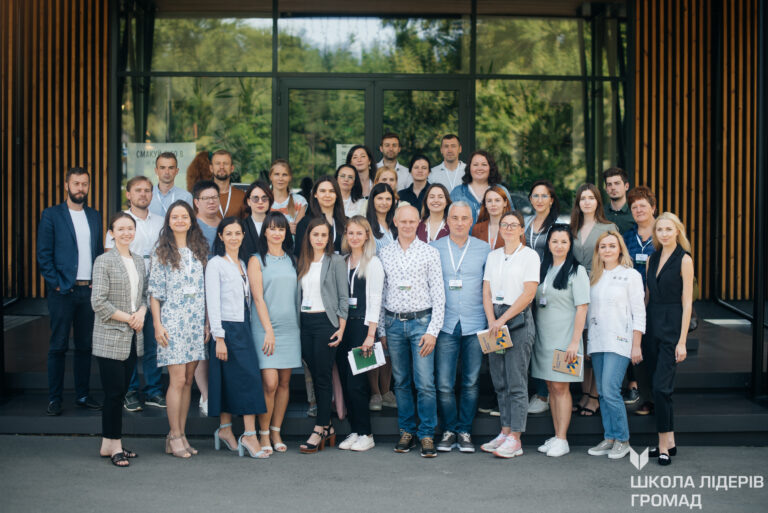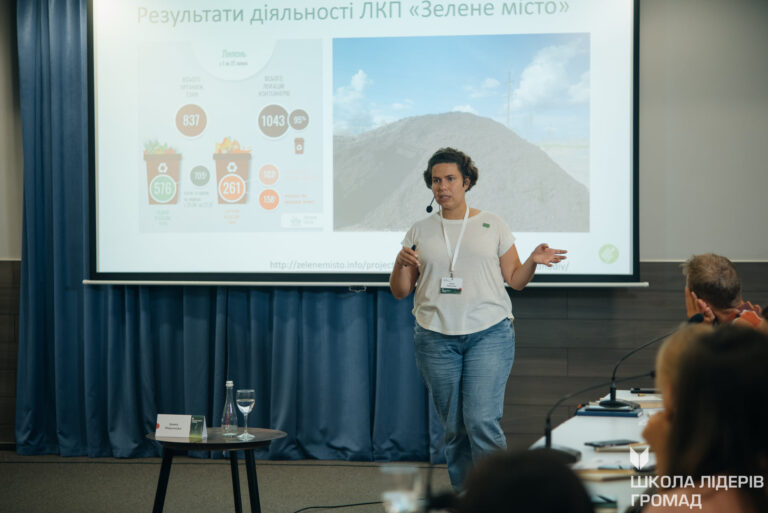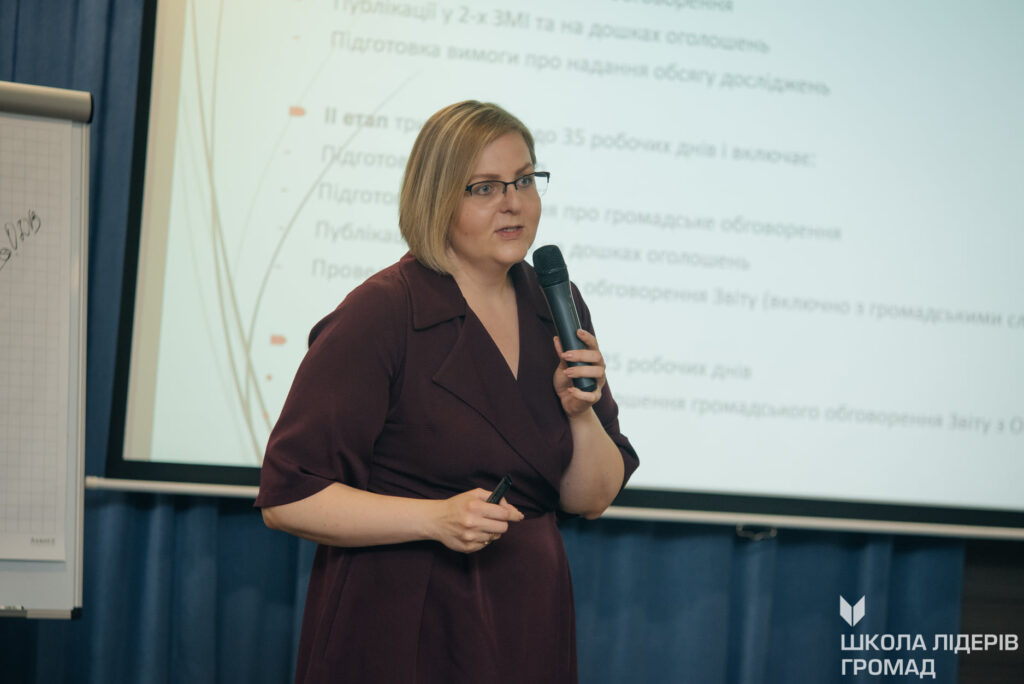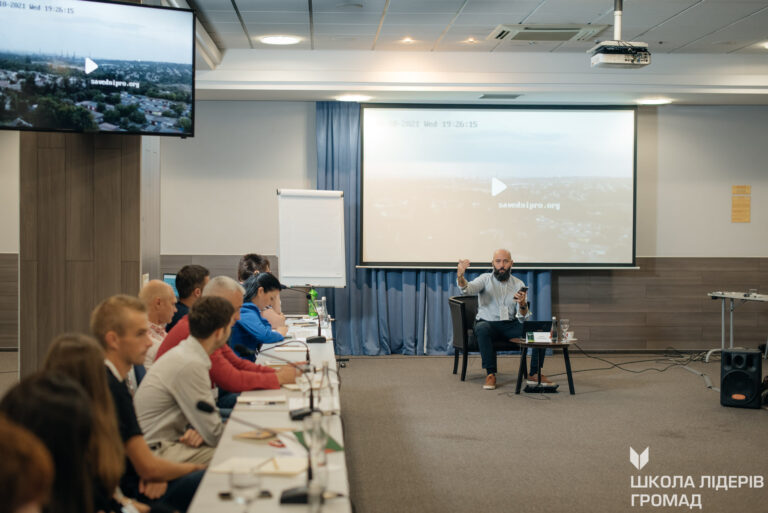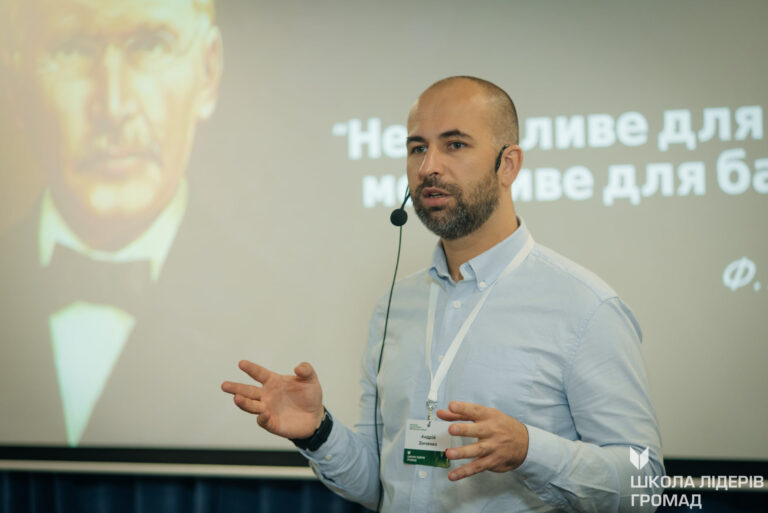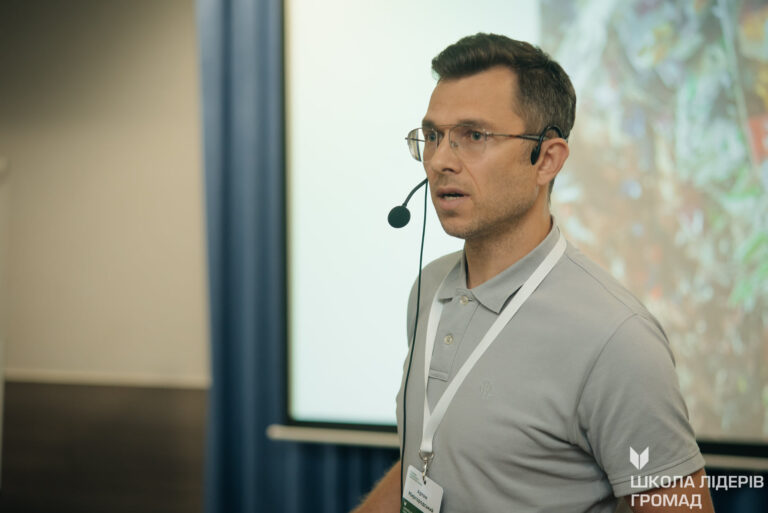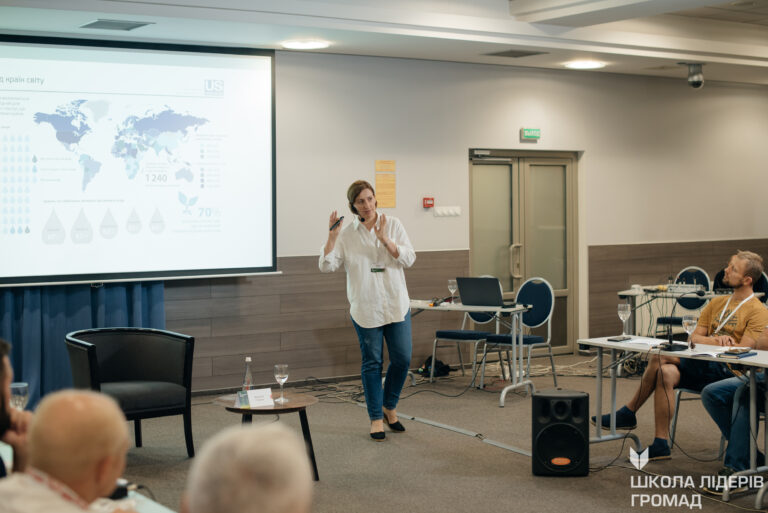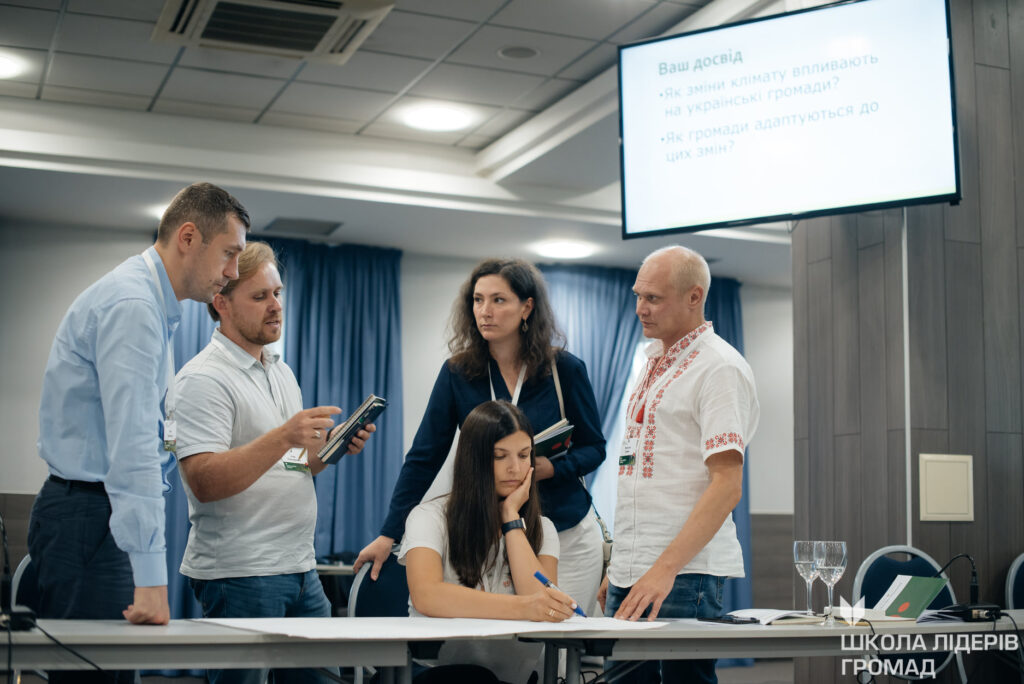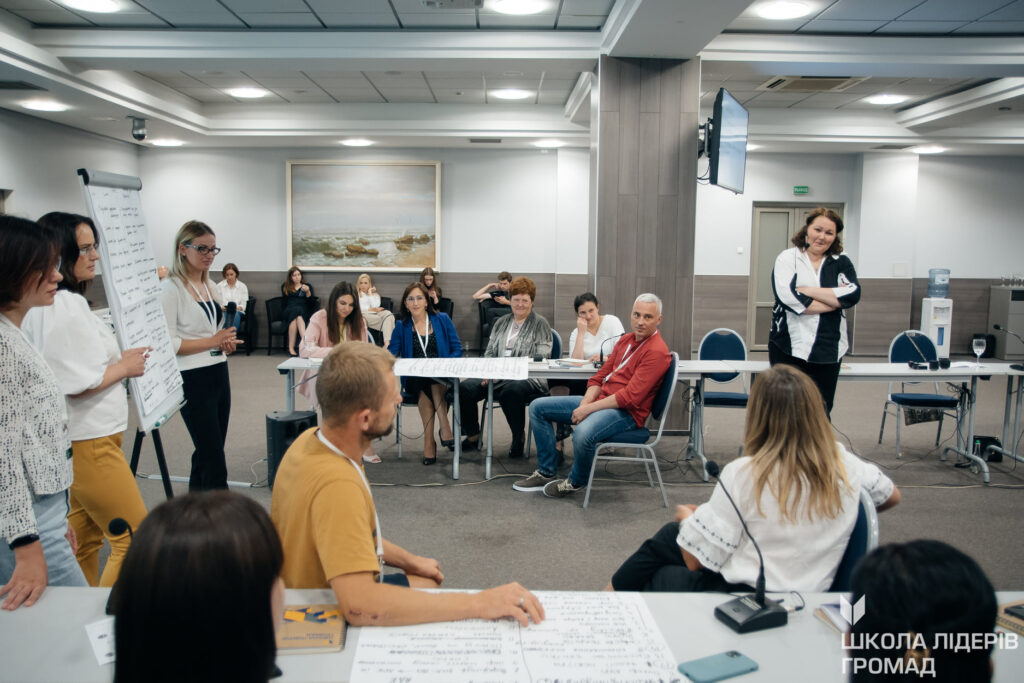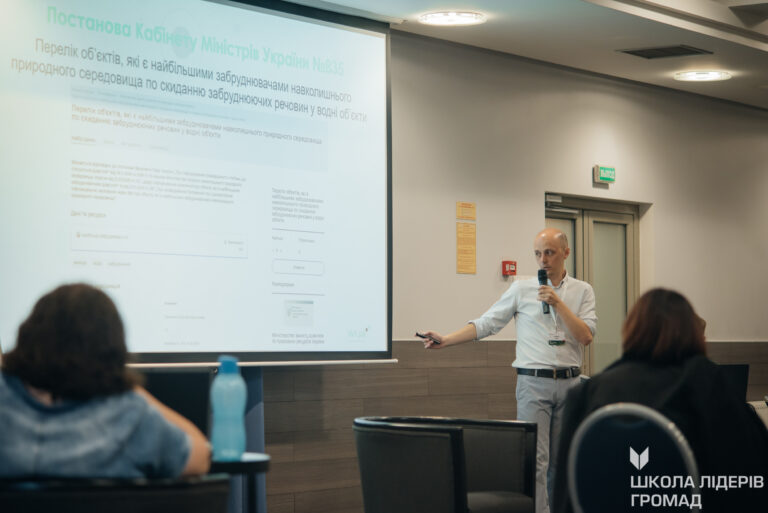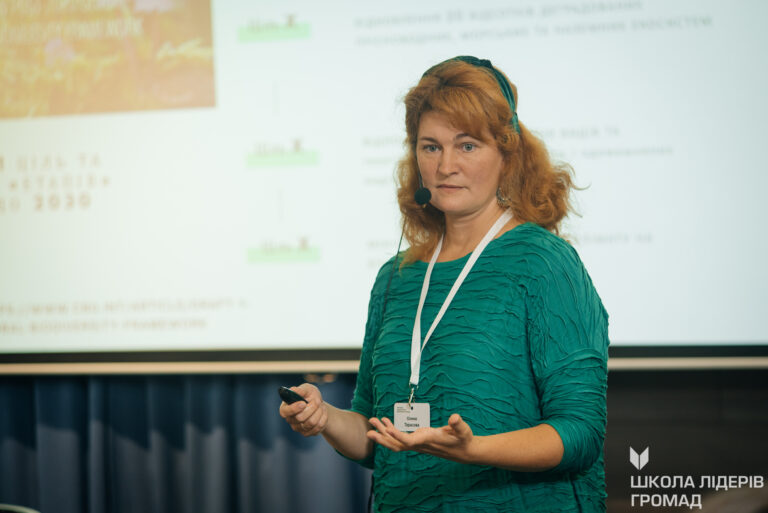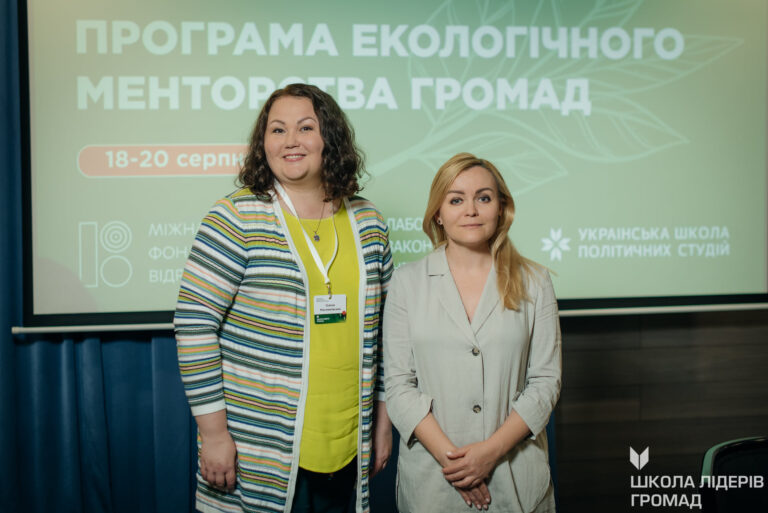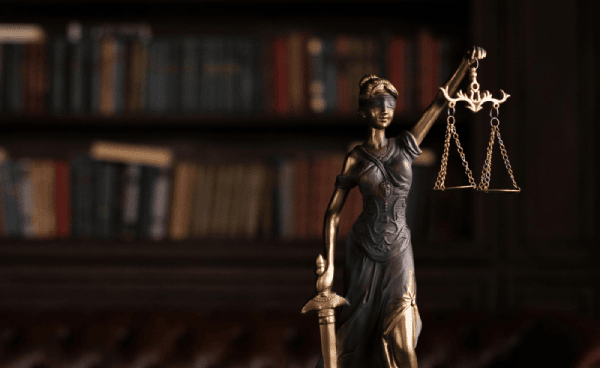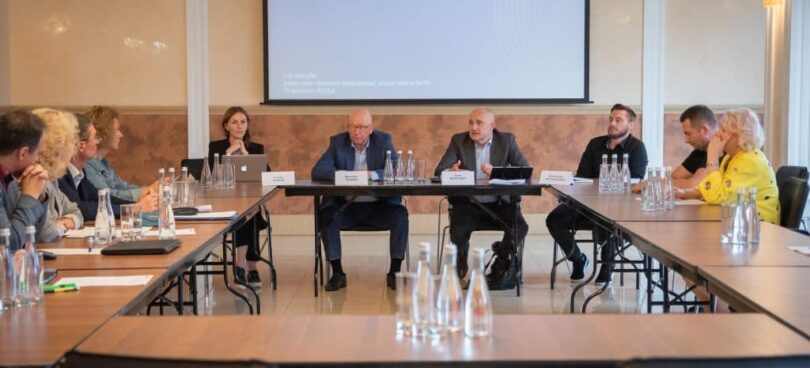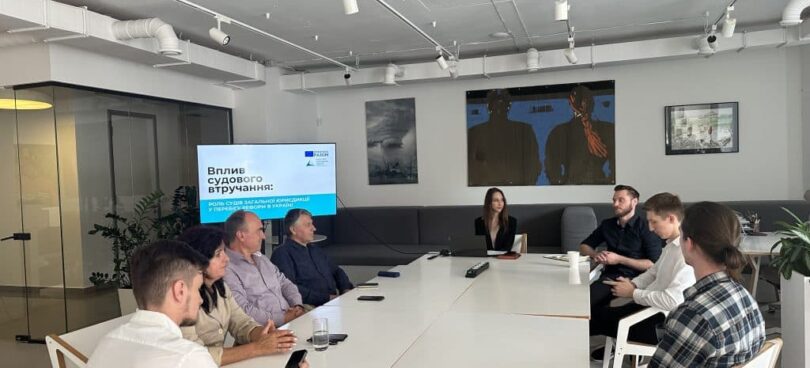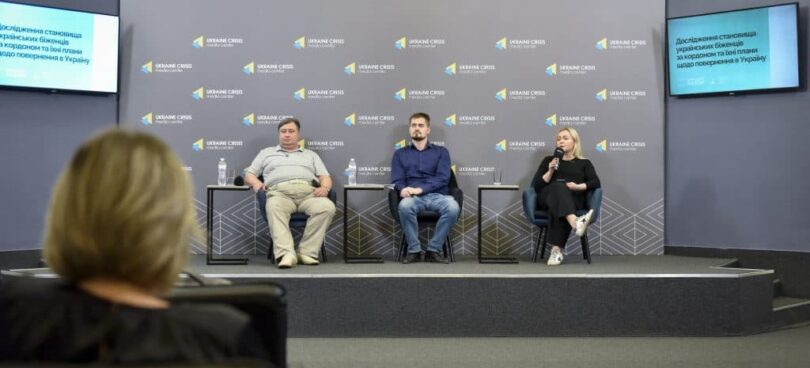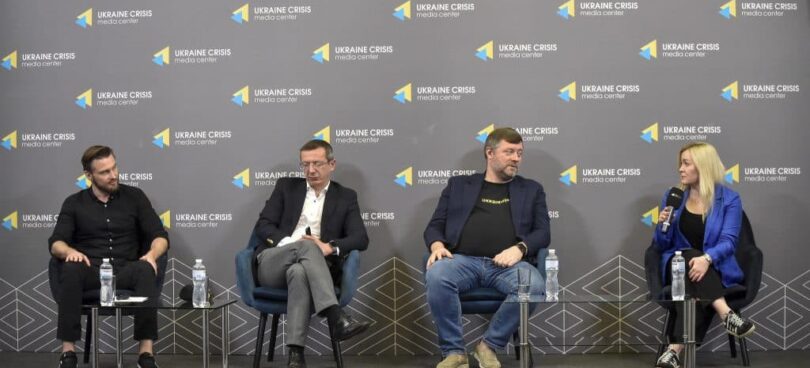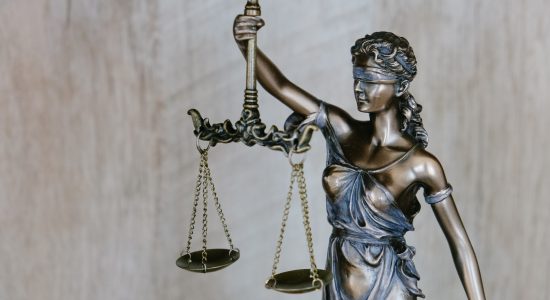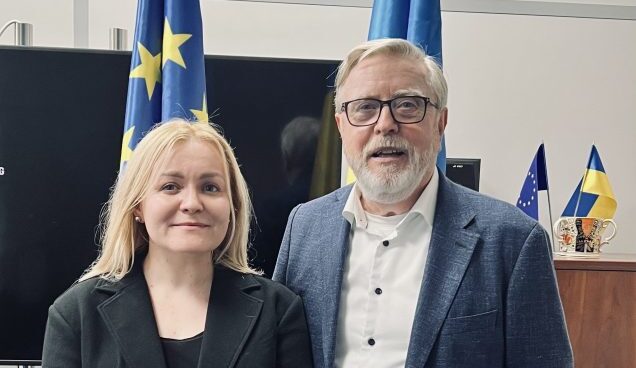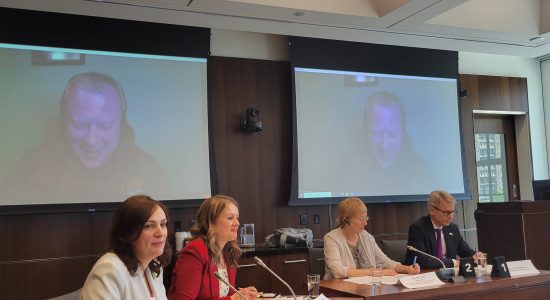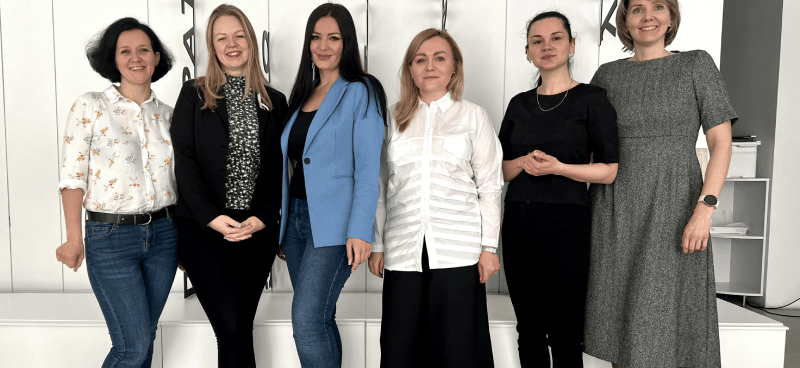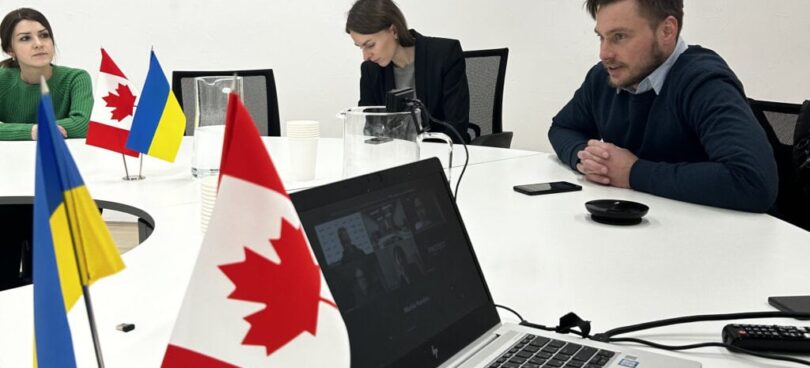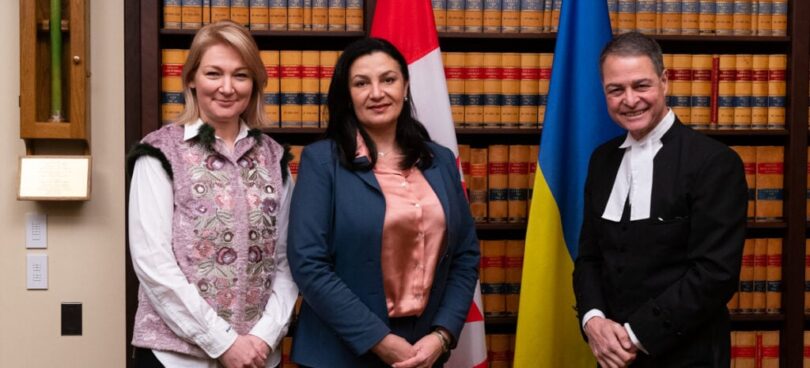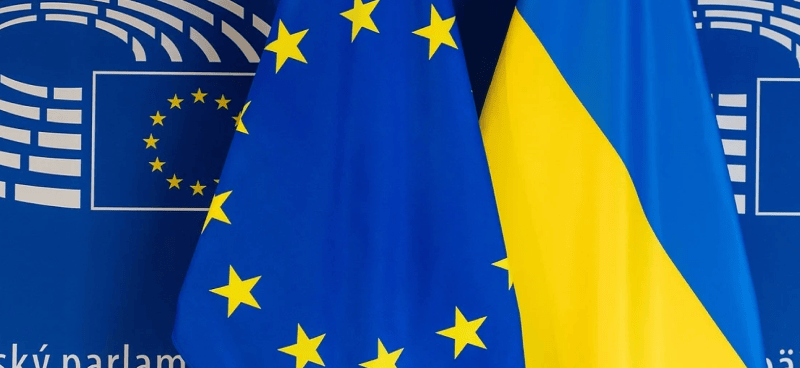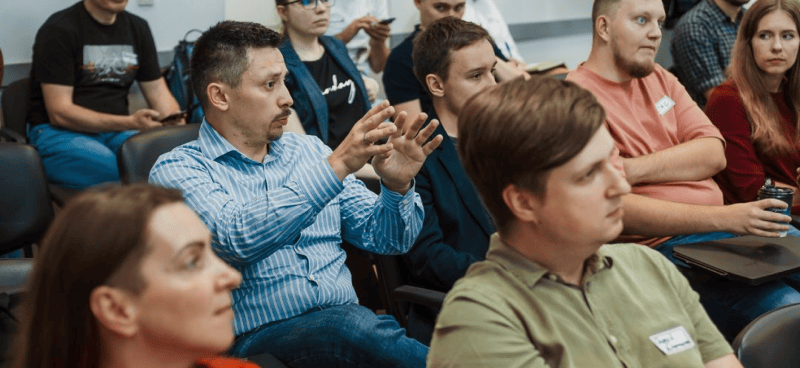On August 18, we launched the training of the first Program of Environmental Mentoring of amalgamated territorial communities. This year’s School of Community Leaders program has changed its format and now has three stages. The first was training for leaders that we have already conducted in June. Now the second stage is the seminars for mentors on environmental issues.
Over the course of three days, 30 selected mentors participated in panel discussions on a wide range of environmental issues: from separate waste sorting to energy sustainability of communities. Now that they have all the necessary knowledge and tools, the mentors will go to the communities we selected in the first phase and start working with the leaders during September-December this year.
Zero waste cities: from waste management to resource management
The concept of zero waste is about conscious consumption, about minimizing the amount of waste, giving preference to reusable items instead of “convenient” disposable ones – this is a necessity for the whole world and Ukraine in particular. But how can communities implement this concept?
Iryna Myronova, Executive Director of Zero Waste Lviv, Coordinator of ZW Cities, Member of the Board of Zero Waste Alliance Ukraine, shared her experience of initiating environmental change in the communities with mentors on the example of Lviv, a pilot zero waste city project in Ukraine.
Environmental Impact Assessment: How amalgamated territorial Communities and local governments can participate in ecologically important decisions
What are Strategic Environmental Assessment (SEA) and Environmental Impact Assessment (EIA)? How are these tools different, and how can civil society use them?
For successful work with EIA, it is important to understand the legal framework for environmental impact assessment, its stages, and features of public participation. Our mentors were helped to understand these complex issues by Maryna Shymkus, project manager of the European Business Association and an expert on SEA and EIA.
She told the Environmental Mentoring program participants the nuances of the environmental impact assessment procedure and the importance of civic control in the field of EIA.
Clean air in communities: responsibility, control bodies and levers of influence
In a few years, Ukraine has turned from a white spot on the map of Europe into a country with a developed system of equipment for air quality monitoring. Today, in just a few clicks, you can find out the air quality in almost any part of Ukraine, but how to reduce the level of air pollution?
Fine dust and emissions from large enterprises not only impair comfort – they cause a lot of diseases. Clean air is vital for people. Therefore, it is important to understand how the community and local authorities can monitor and control the environment, influence pollutants, and prevent violations of permitting procedures.
To answer all these questions, Artem Romaniukov, co-founder and director of development of Saveecobot and SaveDnipro and a 2018 USPS program Alumnus, shared with mentors successful cases of environmental control of enterprises and introduced them to the tools of air quality monitoring.
Energy sustainability of amalgamated territorial communities and how to improve it
Communities depend on energy. In addition, not everyone has learned to use energy effectively and, if possible, sparingly. Therefore, it is now important to explain to communities that energy efficiency is not only financially viable but also helps to avoid crises caused by natural disasters. Every community must have a crisis response plan and an uninterrupted power supply.
Andriy Zinchenko, the co-founder of the NGO Greencubator and a participant in this year’s USPS program, told the mentors where communities could get energy from, how to avoid crises, and become energy sustainable. And on the example of his project of the municipal energy cooperative Solar Town, he demonstrated that energy is a matter not only of big capital but also of local communities and groups of people.
Organization of two-stream separate waste sorting in cities: mixed and biological waste
The main reasons for improper waste management in Ukraine today are the lack of sorting skills, the absence of the necessary infrastructure, and misunderstanding of the extent of pollution and its consequences. Because of this, only 5% of waste is sorted in Ukraine.
Fortunately, we have people who care. They are developing a sorting culture in Ukraine. One of them is Artem Myrhorodskiy, CEO and founder of the GreenAge project, CEO of BioBin, and a 2007 USPS Alumnus.
From his own experience, he told how to turn waste sorting into a profitable business. There is a demand for processing and sorting in society, we just need to provide people and businesses with convenient tools for this.
Water health of your community
Clean water is another vital condition for the development and functioning of communities. According to a study by the United Nations Development Program (UNDP Ukraine) for 2020, water pollution and poor drinking water quality is an environmental problem №1 that worries Ukrainians.
How to solve “water” problems in Ukraine? Where to start? Mariana Hinzula, a water protection expert, worked on this with environmental mentors.
According to the speaker, the revival of water bodies of the territory is one of the key issues of community development, which will allow solving the numerous ecological and socio-cultural problems of the territory. However, the rescue of reservoirs requires a systematic and professional approach. There are no unsolvable environmental problems, but everything has a price. For the preservation of reservoirs, we’ll have to pay – not only money but also the time and effort of the people who are not indifferent about this problem.
Adaptation of amalgamated territorial Communities to climate change
In recent years, we have all seen climate change in Ukraine: abnormal heat, floods in the cities, and increasing fires. Therefore, adapting to these changes is a serious challenge for communities now.
Olena Maslyukivska, Associate Professor of Ecology at NaUKMA, curator of the Environmental Mentoring Program for Communities, and a 2008 USPS Alumna, conducted an interactive training for our mentors on environmental issues on adaptation to climate change.
How much will climate change in Ukraine? How will climate change affect Ukrainian communities? What are the challenges of climate change? How to help the communities adapt to these changes, and how to work properly with the stages of the adaptation cycle?
Open data on about the environment and waste in the circular economy
Working with open data is a popular and effective trend in many areas. In 2014, working with open data even appeared in the anti-corruption strategy. And in 2015, the Cabinet of Ministers approved Resolution №835, which determined which data sets are subject to disclosure in the form of open data.
The benefits of using open data in environmental matters may not be obvious to everyone at first glance, but working with them makes it much easier to solve many environmental problems.
Andriy Hnap, co-founder and data analyst at Waste Ukraine Analytics, told our mentors about this extremely difficult topic. Andriy managed to explain in the most accessible and easy way how to work with open data on the state of the environment.
Biodiversity and ecosystem services: community involvement
From 1970 to 2016, the decline in the population of the species increased to a staggering 68%. This has contributed to biodiversity loss being ranked 4th among global risks in terms of impact.
Mankind needs to stop the careless use of ecosystem services and switch to nature-oriented solutions – that is, to focus efforts on the protection, effective management, and restoration of natural or modified ecosystems.
Olena Tarasova, UNDP Ukraine Project Manager and Expert, told the mentors how to do this and how to involve communities in the transition to nature-oriented solutions. She shared her experience working with communities and tools to involve amalgamated territorial communities in biodiversity conservation.
Now we move on to the 3rd stage of the project – the cooperation of mentors and communities. This is the longest and most difficult stage, but we believe that communities will feel the changes for the better by the end of this year.
We hope that this project will be an impetus for communities not to stop but to take more care of the environment after the end of the program. If this experience is successful, we plan to expand mentoring support to communities in other areas, so we are already waiting for the third stage of this year’s project.
